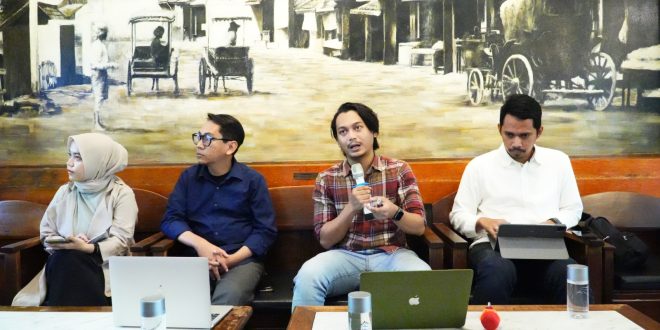The Association for Elections and Democracy (Perludem) said there was a possibility that cases of dispute over the results of the 2024 Legislative Election (PHPU), which were included in the schedule for the hearing to read the dismissal decision, would not proceed to the next stage. If that happens, there will be 90 cases left that will enter the trial to prove the truth of the arguments put forward. This number has increased compared to the 2019 PHPU legislative election.
“At that time, in the records of Perludem, only around 30 cases had proceeded to proof until finally only 13 cases had been granted in the final decision,” said the Perludem researcher, Ihsan Maulana, in the discussion “Launching Results of Monitoring Disputes on Legislative Election Results at the Constitutional Court” in the Region Cikini, Central Jakarta (20/5).
Apart from that, Ihsan also highlighted the MK’s attitude towards the issue of affirming women’s representation, which was submitted to the MK due to the failure to fulfill the quota of 30 women in several parties in certain electoral districts. Perludem noted that in the Gorontalo Province DPRD legislative election dispute, as many as four parties failed to fulfill the quota of 30 percent of women’s representation, namely the National Awakening Party (PKB), the Gerindra Party, the Nasdem Party, and the Democratic Party. Each of the four parties’ figures for women’s representation is only 27.7 percent.
“If the Constitutional Court does not continue the case or does not even accept the 30 percent argument, this will set a bad precedent for how the KPU’s rounding down mechanism in the PKPU is flawed in the context of the rule of law. “This will have bad legitimacy for increasing women’s representation in the future,” explained Ihsan.
Previously, the Supreme Court (MA), through Decision Number 24 P/HUM/2023, stated that Article 8 paragraph (2) of KPU Regulation Number 10 of 2023 concerning the mechanism for calculating 30 percent of female legislative candidates was contrary to the Election Law. The Supreme Court’s decision does not have binding legal force as long as it is not interpreted as rounding up. []
 Rumah Pemilu Indonesia Election Portal
Rumah Pemilu Indonesia Election Portal




